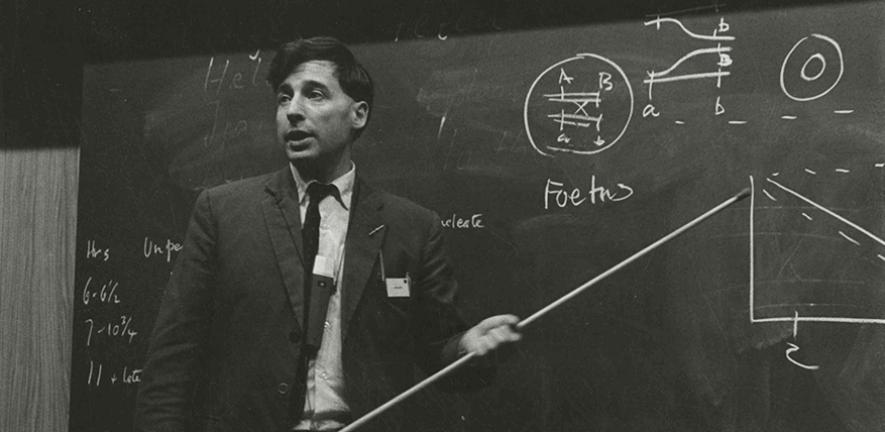
Submitted by Emily Rigby on Mon, 29/09/2025 - 10:07
Celebrations at the University of Cambridge honour the life, work and legacy of Sir Robert Edwards, whose work revolutionised fertility treatment through the invention of in vitro fertilisation.
A Nobel prize-winner and one of the most influential scientists of the twentieth century, Edwards spent much of his career in the Department of Physiology at the University of Cambridge.
Together with gynaecologist Patrick Steptoe and technician and embryologist Jean Purdy, Edwards pioneered the technique of IVF, in which eggs are fertilised by sperm in a laboratory, creating an embryo that is transferred into a woman’s womb to achieve pregnancy.
Their breakthrough came when the first IVF baby, Louise Brown, was born in July 1978 - marking the beginning of a new era of medicine.
Researchers estimate there have now been over 13 million babies born from IVF worldwide.
Learn more about the celebrations and Sir Robert Edwards legacy at www.cam.ac.uk/research/news/cambridge-marks-centenary-of-ivf-pioneer-sir-robert-edwards-birth
Story: University of Cambridge
Image: Churchill Archives Centre

